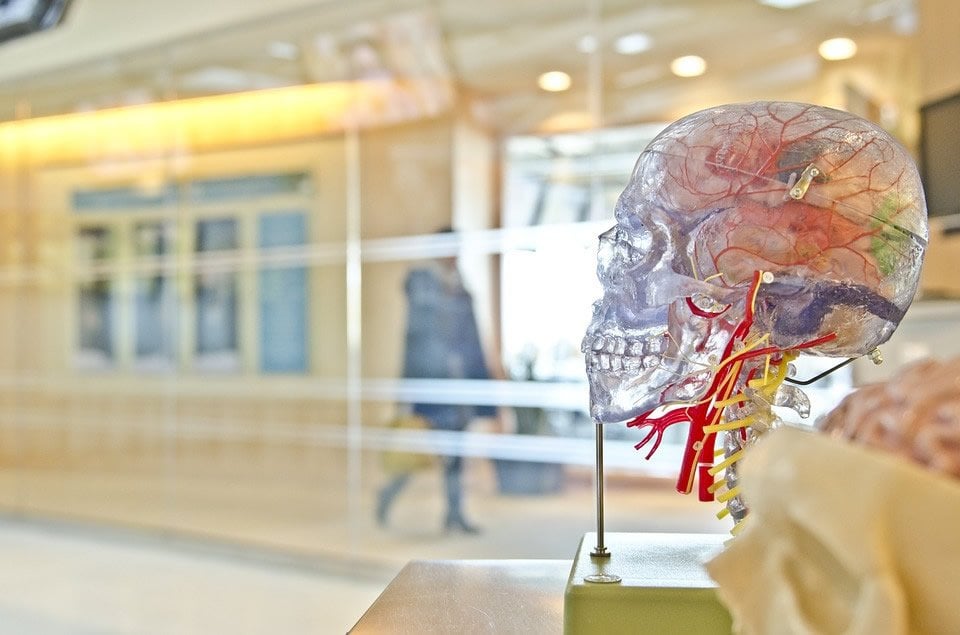Summary: A new study reports your general cognitive ability as a young adult may be a strong predictor of your cognitive function later in life. Researchers report other factors, such as education level and intellectual activities only play a minor role in age related cognitive function.
Source: UCSD.
Early adult general cognitive ability (GCA) — the diverse set of skills involved in thinking, such as reasoning, memory and perception — is a stronger predictor of cognitive function and reserve later in life than other factors, such as higher education, occupational complexity or engaging in late-life intellectual activities, report researchers in a new study publishing January 21 in PNAS.
Higher education and late-life intellectual activities, such as doing puzzles, reading or socializing, have all been associated with reduced risk of dementia and sustained or improved cognitive reserve. Cognitive reserve is the brain’s ability to improvise and find alternate ways of getting a job done and may help people compensate for other changes associated with aging.
An international team of scientists, led by scientists at University of California San Diego School of Medicine, sought to address a “chicken or egg” conundrum posed by these associations. Does being in a more complex job help maintain cognitive abilities, for example, or do people with greater cognitive abilities tend to be in more complex occupations?
The researchers evaluated more than 1,000 men participating in the Vietnam Era Twin Study of Aging. Although all were veterans, nearly 80 percent of the participants reported no combat experience. All of the men, now in their mid-50s to mid-60s, took the Armed Forces Qualification Test at an average age of 20. The test is a measure GCA. As part of the study, researchers assessed participants’ performance in late midlife, using the same GCA measure, plus assessments in seven cognitive domains, such as memory, abstract reasoning and verbal fluency.
They found that GCA at age 20 accounted for 40 percent of the variance in the same measure at age 62, and approximately 10 percent of the variance in each of the seven cognitive domains. After accounting for GCA at age 20, the authors concluded, other factors had little effect. For example, lifetime education, complexity of job and engagement in intellectual activities each accounted for less than 1 percent of variance at average age 62.
“The findings suggest that the impact of education, occupational complexity and engagement in cognitive activities on later life cognitive function likely reflects reverse causation,” said first author William S. Kremen, PhD, professor in the Department of Psychiatry at UC San Diego School of Medicine. “In other words, they are largely downstream effects of young adult intellectual capacity.”
In support of that idea, researchers found that age 20 GCA, but not education, correlated with the surface area of the cerebral cortex at age 62. The cerebral cortex is the thin, outer region of the brain (gray matter) responsible for thinking, perceiving, producing and understanding language.
The authors emphasized that education is clearly of great value and can enhance a person’s overall cognitive ability and life outcomes. Comparing their findings with other research, they speculated that the role of education in increasing GCA takes place primarily during childhood and adolescence when there is still substantial brain development.

However, they said that by early adulthood, education’s effect on GCA appears to level off, though it continues to produce other beneficial effects, such as broadening knowledge and expertise.
Kremen said remaining cognitively active in later life is beneficial, but “our findings suggest we should look at this from a lifespan perspective. Enhancing cognitive reserve and reducing later life cognitive decline may really need to begin with more access to quality childhood and adolescent education.”
The researchers said additional investigations would be needed to fully confirm their inferences, such as a single study with cognitive testing at different times throughout childhood and adolescence.
Funding: Funding support for this research came, in part, from the National Institute on Aging (R01 AG050595, R01 AG022381, R01AG022982, R03AG046413, K08AG047903), the Juho Vainio Foundation, Academy of Finland and the Veterans Affairs San Diego Center of Excellence for Stress and Mental Health Healthcare System.
Co-authors include: Asad Beck and Mark E. Sanderson-Cimino, UC San Diego and San Diego State University; Jeremy A. Elman, Daniel E. Gustavson, Xin M. Tu, Matthew S. Panizzon, Christine Fennema-Notestine, Donald J. Hagler Jr., Bin Fang, Anders M. Dale and senior author Carol E. Franz, UC San Diego; Chandra A. Reynolds, UC Riverside; Eero Vuoksimaa, University of Helsinki; and Rosemary Toomey and Michael J. Lyons, Boston University.
Source: Scott LaFee – UCSD
Publisher: Organized by NeuroscienceNews.com.
Image Source: NeuroscienceNews.com image is credited to Kalogeraki, Yusifov, and Löwel, eNeuro (2019).
Original Research: The study will appear in PNAS.
[cbtabs][cbtab title=”MLA”]UCSD”Youthful Cognitive Ability Predicts Mental Capacity Later in Life.” NeuroscienceNews. NeuroscienceNews, 21 January 2019.
<https://neurosciencenews.com/youth-cognition-aging-10602/>.[/cbtab][cbtab title=”APA”]UCSD(2019, January 21). Youthful Cognitive Ability Predicts Mental Capacity Later in Life. NeuroscienceNews. Retrieved January 21, 2019 from https://neurosciencenews.com/youth-cognition-aging-10602/[/cbtab][cbtab title=”Chicago”]UCSD”Youthful Cognitive Ability Predicts Mental Capacity Later in Life.” https://neurosciencenews.com/youth-cognition-aging-10602/ (accessed January 21, 2019).[/cbtab][/cbtabs]






